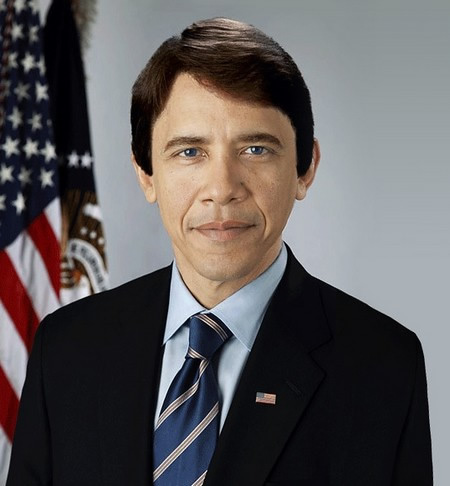Why Obama should not have checked ‘black’ on his census formPosted in Articles, Barack Obama, Census/Demographics, Identity Development/Psychology, New Media, Politics/Public Policy, Social Science, United States on 2010-04-30 02:21Z by Steven |
Why Obama should not have checked ‘black’ on his census form
The Washington Post
2010-04-29
Elizabeth Chang, Sunday Magazine Editor
I have always considered Barack Obama to be biracial, and I had hoped that his election would help our country move beyond the tired concept of race. Unfortunately, the president is not getting with my program.
Although I knew Obama self-identifies as African American, I was disappointed when I read that that’s what he checked on his census form. The federal government, finally heeding the desires of multiracial people to be able to accurately define themselves, had changed the rules in 2000, so he could have also checked white. Or he could have checked “some other race.” Instead, Obama went with black alone…
…I am the mother of biracial children (Asian/Caucasian) and believe that multiracial people need to be accepted and acknowledged — even celebrated. The president’s choice disappoints me, and it seems somewhat disingenuous. Obama, who has also referred to himself as a “mutt,” made a big deal during the 2008 campaign of being able to relate to Hawaiians and Midwesterners, Harvard grads and salespeople, blacks, whites, Latinos, whatever — precisely because of his “unconventional” background and multicultural exposure. On the census, however, he has effectively said that when it counts, he is black…
Read the entire article here.
